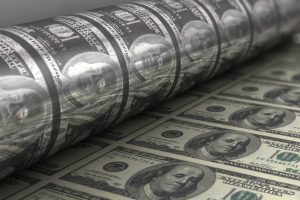The Invention of Money
The comments below are an edited and abridged synopsis of an article by John Lanchester
In three centuries, the heresies of two bankers (John Law and Walter Bagehot) became the basis of our modern economy.

Lanchester says that instruments of trade and finance are inventions—products of the imagination. Paper money, backed by the state, was an innovation that reshaped the world. That’s hard to remember: We grow used to the ways we pay our bills and are paid for our work, to the numbers in our bank balances and credit-card statements. It’s only when the system buckles that we wonder why these things are worth anything. The credit crunch in 2008 triggered a panic when people throughout wondered whether the numbers on balance sheets meant anything. In response to the crisis, Satoshi Nakamoto published a paper that outlined the idea of Bitcoin, a form of money based on cryptography.
The quest for new forms of money hasn’t gone away. Facebook has unveiled Libra, a global currency that draws on the architecture of Bitcoin. The idea is that the value of the new money is derived from a combination of mathematics, global connectedness, and the trust that resides in the world’s biggest social network. How safe is it? How do we know what libras or bitcoins are worth, or whether they’re worth anything?
The present moment in financial invention has some similarities with the period when money in the form we currently understand it—a paper currency backed by state guarantees—was first created. The hero of that story is the nation-state. In all good stories, the hero wants something but faces an obstacle. In the case of the nation-state, what it wants to do is wage war, and the obstacle it faces is how to pay for it.
Lanchester tells the story of John Law and Walter
Bagehot, and says that both men would likely have been amused to see just how
little we have learned. As for the question of what to do about the bankers
responsible for the crash, Kublai Khan would probably have had some ideas.
